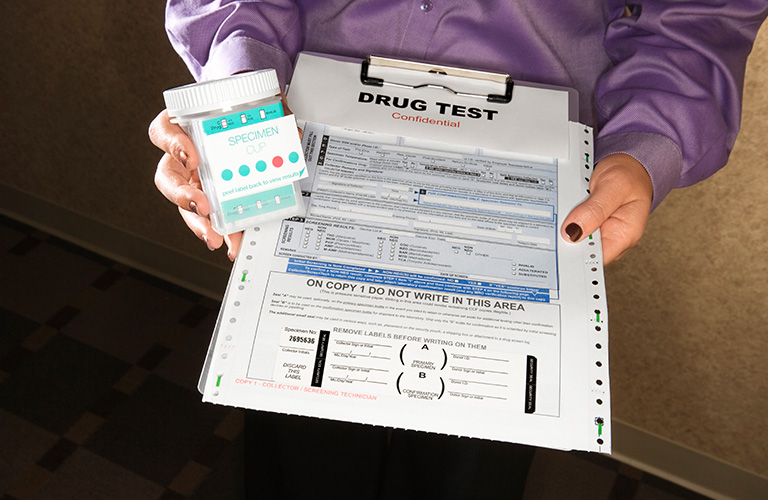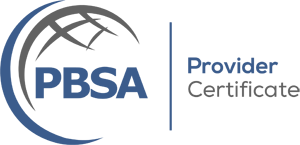Drug Screenings in the Workplace: Ensuring a Drug-Free Environment

In today's dynamic work environment, ensuring a safe and productive workplace is a top priority for employers. One strategy that has gained widespread adoption is the implementation of drug screening programs. An annual survey by the Substance Abuse and Mental Health Services Administration (SAMHSA) reports past year, 70.3 million people aged 12 or older (or 24.9% of the U.S. population) used illicit drugs in the past year. Let’s explore the benefits of incorporating drug screenings in the workplace and discuss best practices for employers looking to maintain a drug-free environment.
Benefits of Implementing Drug Screening Programs
- Promoting Safety and Productivity
A drug-free workplace is safer for employees. Substance abuse can impair judgment, coordination, and cognitive abilities, posing risks not only to the individual but also to colleagues and the overall work environment. By implementing drug screening programs, employers can identify and address potential safety concerns, promoting a secure and productive workplace.
- Reducing Accidents and Injuries
Substance abuse in the workplace is linked to an increased risk of accidents and injuries. Whether operating machinery, driving, or performing other critical tasks, employees impaired by drugs pose a significant hazard. Drug screenings help identify individuals with substance abuse issues early on, allowing employers to intervene and reduce the likelihood of workplace accidents.
- Improving Employee Health and Well-being
Substance abuse can take a toll on an individual's physical and mental health. By identifying employees struggling with substance abuse through drug screenings, employers can connect them with resources and support to address the underlying issues. This not only benefits the individual but contributes to a healthier and more engaged workforce.
- Enhancing Workplace Morale and Trust
A drug-free workplace fosters a culture of trust and accountability among employees. Knowing that their colleagues are committed to a drug-free environment creates a sense of security and mutual respect. This contributes to higher morale and a more positive workplace culture.
Best Practices for Implementing Drug Screening Programs
- Clearly Communicate Policies
Transparency is key when implementing drug screening programs. Employers should clearly communicate their drug-free workplace policies to all employees. This includes details about the types of drug tests conducted, the frequency of screenings, and the consequences of violating the policy.
- Obtain Informed Consent
Before conducting drug screenings, employers should obtain informed consent from employees. Clearly explain the purpose of the screenings, how the information will be used, and the consequences of non-compliance. Obtaining consent reinforces the importance of cooperation and adherence to workplace policies.
- Conduct Random Screenings
Random drug screenings are an effective way to deter substance abuse and catch potential issues early on. Random testing reduces the likelihood of individuals attempting to manipulate results.
- Offer Support and Resources
In instances where employees test positive for substance abuse, employers should have support mechanisms in place. Provide resources such as Employee Assistance Programs (EAPs), counseling services, or referrals to rehabilitation programs. Offering support demonstrates a commitment to the well-being of employees and encourages them to seek help.
- Stay Informed about Legal Requirements
Different jurisdictions may have specific legal requirements and limitations regarding workplace drug screenings. Employers must stay informed about these regulations to ensure compliance and avoid legal complications.
Incorporating drug screening programs into the workplace is a proactive step toward maintaining a safe, healthy, and productive environment. By promoting safety, reducing accidents, and fostering a culture of trust, employers can create a workplace that benefits both the individual and the organization as a whole. Implementing best practices ensures that drug screenings are conducted ethically, transparently, and in compliance with legal requirements, contributing to the overall success of the business.
Take the first step towards a safer and healthier workplace. Invest in the well-being of your employees and the success of your organization. Explore the different options for drug testing here and ensure a drug-free workplace.
Posted by Morgan Mower
Morgan is the Co-Founder and CRO of Western Verify, and spends his free time hanging with his family or making a Sunday dinner brisket.

Morgan is the Co-Founder and CRO of Western Verify, and spends his free time hanging with his family or making a Sunday dinner brisket.


